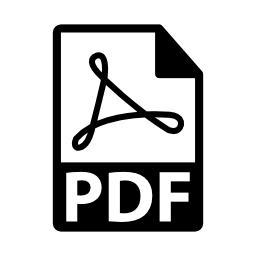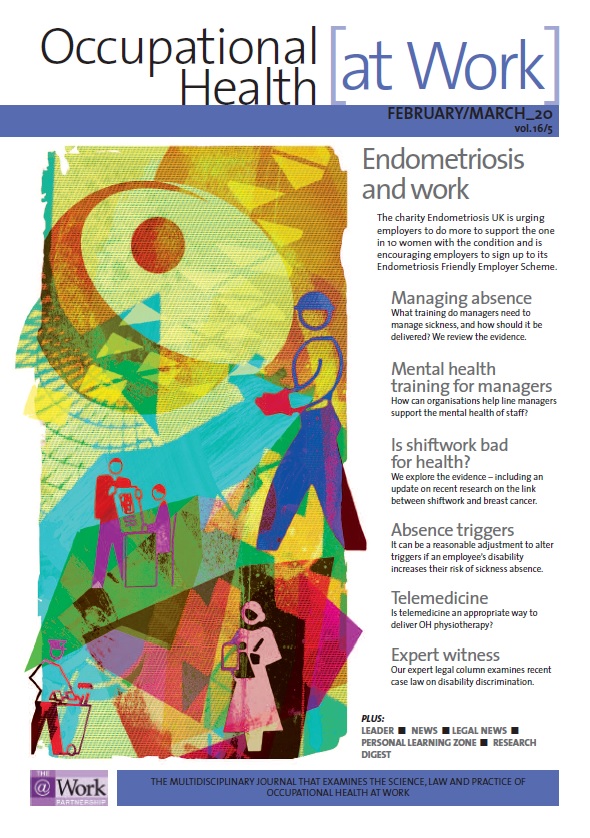February/March 2020 (vol. 16/5)
ContentsFeaturesNewsLegal
NewsResearch DigestResearch PlusCPD
 Personal Learning Zone in this issue
Personal Learning Zone in this issue
Summary:
FEATURED ARTICLES
This issue of Occupational Health [at Work] features a Personal Learning Zone (PLZ) article recommended for continuing professional development (CPD). The assignment questions, ‘Personal learning statement’ and ‘Certificate of engagement’ are available to subscribers at here. These will also be stored in your password-protected PLZ. The PLZ will help you document your own CPD. Occupational health physicians and nurses, occupational hygienists and other professionals can use the resource in support of their specialism’s revalidation or CPD requirements..
Pages 37–39. Reasonable adjustment to absence triggersAn EAT decision highlights that it can be a reasonable adjustment to alter absence triggers for an employee with a disability if their condition is likely to cause increased sickness absence. But employers can also be liable if absences resulting from disability lead to dismissal or other detriment and they cannot show a proportionate means of achieving a legitimate aim.
ADDITIONAL CPD
The following articles, news and research items are suggested reading for CPD and professional revalidation. Subscribers can complete their online Personal Learning Zone CPD record at here
Pages 08–11. A decision of the Employment Appeal Tribunal (EAT) in Q v L makes clear that employers need to look beyond the OH report in considering whether an employee may have a disability protected by the Equality Act 2010. The decision will remind practitioners that OH should not normally disclose confidential medical information to the employer without explicit consent from the individual.
Pages 17–19. Endometriosis can create challenges at work for women with the disease – and even damage careers. OH can advise employees and employers on practical support and help raise awareness of this often-misunderstood condition.
Pages 20–25. OH should work closely with HR in developing manager training on long-term sickness absence and consider carefully the most effective ways of delivering it.
Pages 34–36. Advising employers in cases where an employee has a disability is not always straightforward. Even where the employer instructs OH not to say if an employee might be protected under the Equality Act 2010, if the OH professional considers that adjustments may assist it would be unethical not to mention them..
Pages 40–42. Our compendium of recent research includes a study demonstrating that employees my need support in overcoming barriers to participation in workplace health and wellbeing initiatives, and a Cochrane review on measures to reduce sedentary work to reduce the risk of musculoskeletal symptoms
Author: The At Work Partnership Ltd
Occupational Health at Work February/March 2020 (vol. 16/5) pp43



